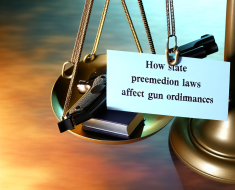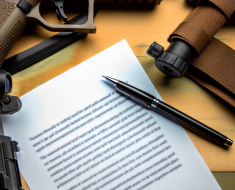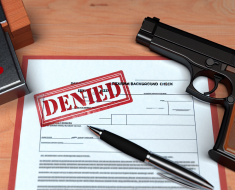How State Laws Handle Lost or Stolen Firearms Reporting

Firearms ownership in the United States comes with a host of responsibilities, including secure storage and prompt reporting if a firearm is lost or stolen. Given the potential for lost or stolen guns to be used in crimes, states have implemented various laws to regulate how owners must report these incidents. This article explores how different states handle lost or stolen firearm reporting, the rationale behind these laws, enforcement mechanisms, and the impact of such regulations on public safety.
The Importance of Reporting Lost or Stolen Firearms
Reporting lost or stolen firearms is critical for several reasons. First, it helps law enforcement track and recover firearms that may otherwise be used in criminal activity. Second, it creates accountability among gun owners and reduces the likelihood of negligent storage. Lastly, timely reporting can aid in investigations if a firearm is later found at a crime scene.
According to a 2020 report by the Bureau of Alcohol, Tobacco, Firearms and Explosives (ATF), approximately 380,000 firearms are reported lost or stolen each year in the United States. This figure underscores the importance of robust reporting systems at the state level to mitigate risks associated with missing firearms.
Overview of State Laws on Lost or Stolen Firearm Reporting
State laws regarding lost or stolen firearms vary significantly across the country. While some states mandate immediate reporting within a specific time frame, others have no explicit requirements. The key differences lie in:
- Whether reporting is mandatory or voluntary
- The timeframe within which reports must be made
- The authority to which reports must be submitted (e.g., local police, state police)
- Penalties for failing to report
- Requirements for secure storage to prevent theft
This section highlights some examples from states with varied approaches.
States with Mandatory Reporting Requirements
A growing number of states require gun owners to report lost or stolen firearms within a prescribed period—usually ranging from 24 hours to a few days. These laws are intended to facilitate rapid law enforcement response and reduce illicit firearm circulation.
- California: Requires owners to report lost or stolen firearms within five days of discovering the loss or theft. Failure to do so can result in misdemeanor charges. Reports must be filed with local law enforcement agencies.
- New York: Mandates that owners notify law enforcement within 24 hours after discovering their firearm is missing. This requirement was tightened after high-profile incidents involving guns used in crimes shortly after being reported stolen.
- Illinois: Requires reporting within 72 hours and includes provisions for secure storage laws intended to reduce thefts.
States Without Explicit Reporting Laws
Conversely, some states do not have explicit statutes requiring firearm owners to report lost or stolen guns. In these jurisdictions, reporting remains largely voluntary but is encouraged by law enforcement agencies as best practice.
- Texas: Does not currently require mandatory reporting but encourages owners to report through public awareness campaigns.
- Florida: Similarly lacks explicit requirements but promotes voluntary reporting via its Department of Agriculture and Consumer Services website.
The Impact of Reporting Laws on Public Safety and Crime Prevention
The rationale behind mandatory lost/stolen firearm reporting laws lies in their potential impact on reducing gun violence and illegal gun trafficking. When firearms are promptly reported missing, law enforcement can quickly flag them in databases such as the National Crime Information Center (NCIC), preventing illegal sales and aiding investigations.
A study published by the Johns Hopkins Center for Gun Policy and Research analyzed data from states before and after implementing mandatory reporting laws. Key findings included:
- A significant decrease (up to 20%) in guns recovered from crime scenes that were previously reported as lost or stolen.
- An increase in recovered firearms returned to lawful owners due to accurate reporting.
- A reduction in illegal “straw purchases” where guns were initially reported as stolen but sold illicitly.
This data suggests that enforcing strict reporting laws can disrupt illegal gun markets by closing loopholes created by unreported thefts.
Challenges and Criticisms Surrounding Lost/Stolen Firearm Reporting Laws
Despite their benefits, these laws face several challenges and criticisms from various stakeholders including gun rights advocates, law enforcement officials, and policymakers:
- Lack of Awareness: Many gun owners remain unaware of their state’s specific requirements regarding lost/stolen firearm reporting. This knowledge gap undermines compliance rates.
- Bureaucratic Burden: Some owners perceive mandatory reporting as an additional bureaucratic hurdle that discourages lawful ownership or leads to underreporting due to fear of legal consequences if negligence is suspected.
- Differing Definitions: States vary widely on what constitutes “lost” versus “stolen,” complicating uniform enforcement and compliance efforts.
- Lack of Enforcement Resources: Law enforcement agencies sometimes lack adequate resources to follow up on reported cases effectively, reducing the practical utility of reports received.
An illustrative case








